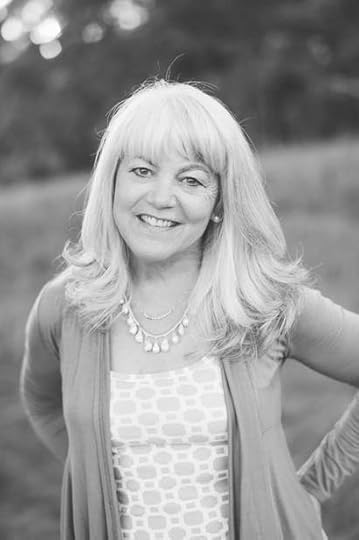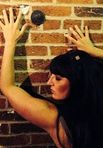carpe noctem interview: sarah snyder
 Aldrich Press, 2017 THINGS WE’RE DYING TO KNOW…
Aldrich Press, 2017 THINGS WE’RE DYING TO KNOW…Let’s start with the book’s title and your cover image. How did you choose each?
The cover for The Human Contract has a photograph that I took of my children and their friends at Halloween when I was playing around in a darkroom again with black and white photography—I love the image. (These little wonders are all in their late twenties now.) I wanted to be clear on the cover that the ‘contract’ was about mothering, loving. For Notes From a Nomad, I used a photograph my son took of my husband and me as we were bicycling through Turkey—the image captures something about the gravitational power of travel for me.
What were you trying to achieve with your book? Tell us about the world you were trying to create? Who lives in it?
I hope I unveiled moments of mothering, losing a mother, and being mothered in The Human Contract. In Notes From a Nomad I am trying to share specific glimpses of what I see and do as I travel; I actually am working on a full-length book about the connection between photographs and poems while I travel.
How did you order the poems in the collection? Do you have a specific method for arranging your poems or is it sort of haphazard, like you lay the pages out on the floor and see what order you pick them back up in?
The ordering of the poems in The Human Contract changed a lot over the course of working on the manuscript. In the end I decided to reverse chronology as a way of explanation maybe. I was less certain about the grouping of poems in Notes From a Nomad — maybe that’s why I am working on this new book.
For you, what is it to be a poet? What scares you most about being a writer? Gives you the most pleasure?
To be a poet for me means to come home. When I was 18, I remember calling my parents from a phone closet (it was bigger than a booth – I remember lying on my back with my feet up the side) on the fourth floor of Maine Hall at Bowdoin College. I had been at college for about two months and hadn’t found a real home. “I think I’d like to leave, go to the house in South Stafford and write poetry,” I said.
Silence. I can only imagine what my parents were thinking or miming to each other on two different phones.
“You know you’d have a lot more experiences to write about if you stayed,” my dad finally said.
He was right. And my life happened with a lot of experiences: finishing college, teaching, graduate school, more teaching, marrying, having two kids, more teaching — a life brimming with very little time to write. When the opportunity emerged to retire early at sixty, I felt a magnetic pull to do something I’d had an urge to do forty-two years before: spend a lot of time in Vermont writing poems. And so I have. There’s a poem by William Stafford that speaks to me of the guiding need I have felt:
The Way It Is
There’s a thread you follow. It goes among
things that change. But it doesn’t change.
People wonder about what you are pursuing.
You have to explain about the thread.
But it is hard for others to see.
While you hold it you can’t get lost.
Tragedies happen; people get hurt
or die; and you suffer and get old.
Nothing you do can stop time’s unfolding.
You don’t ever let go of the thread.
Are there other types of writing (dictionaries, romance novels, comics, science textbooks, etc.) that help you to write poetry?
I write for two hours each morning or try to. I use a lot of ‘found’ language in my writing from dictionaries, encyclopedias, poetry collections, or random books pulled from shelves. I never take more than three sequential words. But I find that these words often pull me into surprising places. I live by Robert Frost’s adage, “No surprise for the writer, no surprise for the reader.” When I am surprised where I go or what I write, that writing often has heat and power.
Without stopping to think, write a list of five poets whose work you would tattoo on your body, or at least write in permanent marker on your clothing, to take with you at all times.
Poets who move me: Jill McDonough, Eavan Boland, Li-Young Lee, Kay Ryan, Maggie Smith, Rilke, Seamus Heaney…
What book are you reading that we should also be reading?
I am about to start Nicole Krauss’s new novel Forest Dark, anticipating great joy because I loved The History of Love, felt like I was often reading poetry in her prose.
Purchase The Human Contract.
***
Purchase Notes From a Nomad.
 Finishing Line Press, 2017
Finishing Line Press, 2017
 Sarah Dickenson Snyder has written poetry since she knew there was a form with conscious line breaks. She has two poetry collections, The Human Contract (Aldrich Press) and Notes from a Nomad (Finishing Line Press). Recently, poems have appeared in The Comstock Review, The Main Street Rag, immix, Chautauqua Literary Magazine, Piedmont Journal, Sunlight Press, Stirring: a Literary Journal, and Whale Road Review. In May of 2016, she was a 30/30 Poet for Tupelo Press. One poem was selected by Mass Poetry Festival Migration Contest to be stenciled on the sidewalk in Salem, MA, for the annual festival, April 2017. Another poem was nominated for Best of Net 2017. Visit her online at https://sarahdickensonsnyder.com/.
Sarah Dickenson Snyder has written poetry since she knew there was a form with conscious line breaks. She has two poetry collections, The Human Contract (Aldrich Press) and Notes from a Nomad (Finishing Line Press). Recently, poems have appeared in The Comstock Review, The Main Street Rag, immix, Chautauqua Literary Magazine, Piedmont Journal, Sunlight Press, Stirring: a Literary Journal, and Whale Road Review. In May of 2016, she was a 30/30 Poet for Tupelo Press. One poem was selected by Mass Poetry Festival Migration Contest to be stenciled on the sidewalk in Salem, MA, for the annual festival, April 2017. Another poem was nominated for Best of Net 2017. Visit her online at https://sarahdickensonsnyder.com/.
Published on October 25, 2017 21:00
No comments have been added yet.



